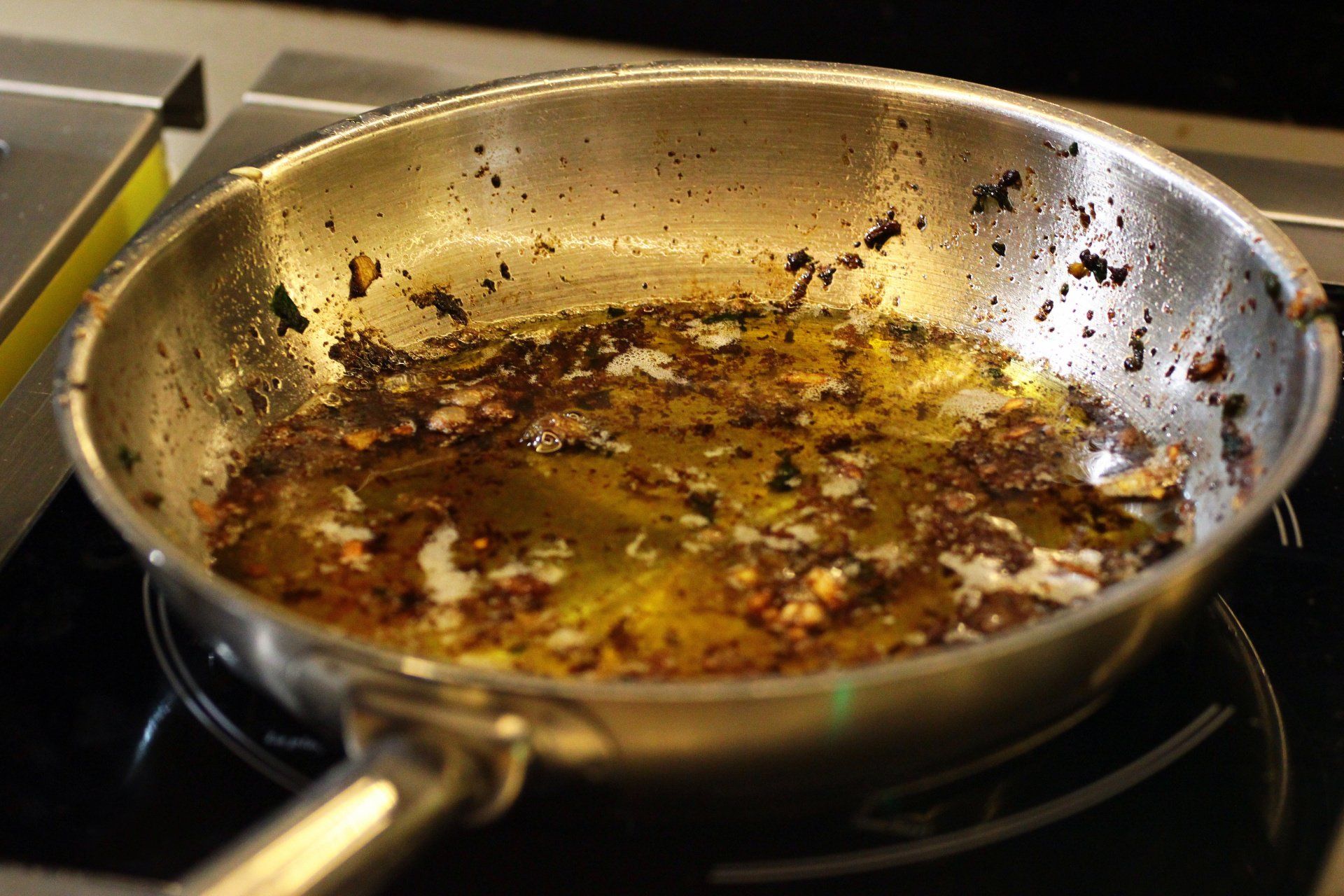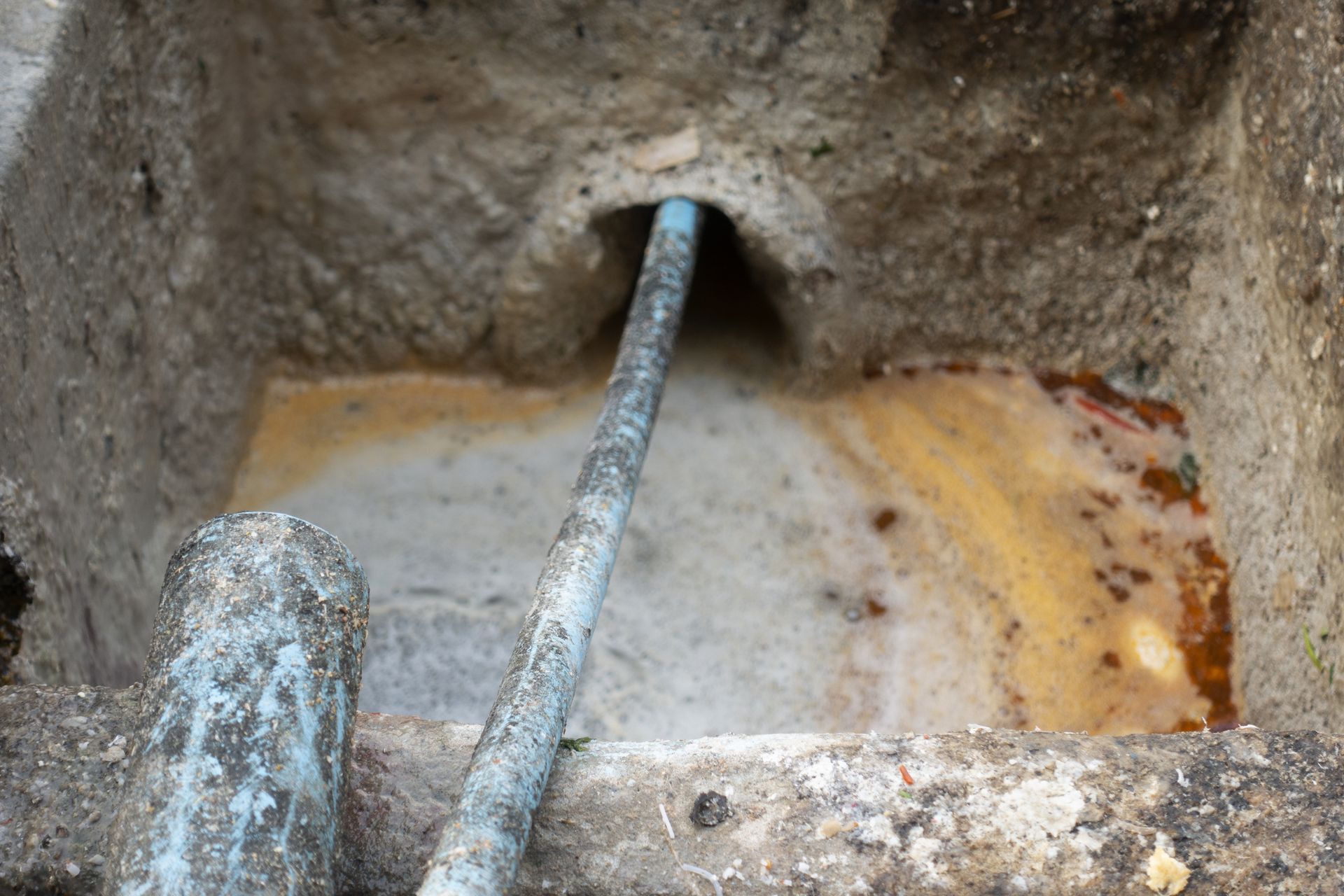Call Today for a FREE Quote
(404) 419-6887
Difference Between Grease and Oil

Grease is thicker than oil and turns to a solid when it cools to room temperature. Grease is the residue that remains after cooking fats (like when frying bacon), whereas cooking oil is often derived from plants.
Grease is one of the more pernicious aspects of FOG because it’s liquid when warm. People cooking at home may assume grease as a liquid is a harmless cooking byproduct that can be washed down the drain. The problem is it will eventually cool and transform into its sludgy solid form. In addition to taking up space in pipes, grease is also sticky. Debris, particles of food waste, hair, sanitary wipes and other detritus will stick to cooked grease in pipes and sewers, resulting in growing clogs.
While cooking oils may stay liquid even at lower temperatures, they can still stick to surfaces and attract floating particles which may then stick to other clogs. Even liquid cooking oil will eventually contribute to the formation and growth of blockages in pipes.
Do Garbage Disposals Eliminate Grease?
Garbage disposals might break solidified grease into small little pieces, but they don’t change the chemical makeup of the grease, so no. Putting grease down the garbage disposal and putting it down the drain will lead to the same result.
What’s the Difference Between Grease as a Lubricant and Grease as a Cooking Byproduct?
Both lubricants and cooking grease are often simply referred to as “grease,” but they are different. The type of grease you would use in automotive or mechanical applications is formulated to serve a purpose rather than simply being a byproduct of cooking fat. They are a combination of a base oil, additives and thickeners.
Ball bearing, gears, hinges and other parts in machines frequently require lubricants or function better when “greased.” Grease can be bought at hardware stores or auto parts retailers in tins or tubes. It may look kind of like the grease you collect from frying bacon, but you wouldn’t want to put bacon grease in any mechanisms.
Grease is preferable to oil for bearings because its viscosity (as a soft solid) allows it to stay in place. Oil has the benefit of reducing drag and distributing throughout a system to lube other components. Oil also continues working at higher temperatures than many mechanical greases can tolerate.
Are There Animal-Derived Cooking Oils?
There are some animal-derived options that serve the same purpose as vegetable cooking oils. Lard, butter and suet are three common examples.
Suet is fat that girds the kidneys and loins in cattle or sheep. It’s solid until the fat is heated to roughly 113 degrees Fahrenheit. Suet is frequently used for deep frying pastries. Beef or mutton tallow (rendered fat) and lard (rendered pig fat) can also be used for deep frying. Although butter can be used as a cooking oil in pan frying, it can’t be used as deep fryer oil.
Many modern restaurants prefer to use vegetable-derived cooking oil for frying purposes because ’it's considered healthier and more affordable than animal-derived frying oils.
Can Cooking Oils Substitute for Petroleum-Derived Oils?
Not purely in their natural form, but many vehicle engines can (and have) been modified to operate on vegetable oil, biodiesel or some combination of petroleum and ethanol (which is derived from vegetables instead of petroleum).
In fact, all the vehicles in Southern Green Industries’ fleet have been modified to operate on the biodiesel we are able to produce through our waste cooking oil recycling, making us the greenest waste fryer oil recycling and grease trap cleaning company in the Atlanta metro area.
Biodiesel is derived from transesterification, which essentially means some organic components in the cooking oil (organic alkyl) are swapped with methyl group components from alcohol (usually methanol or ethanol) via a chemical process involving a catalyst.
Some diesel vehicles can operate on biodiesel or high-biodiesel blends, but you should always check with a vehicle’s manufacturer before putting biodiesel into a diesel vehicle.
Let Us Help Eliminate Your Restaurant’s FOG and Recycle Your Waste Cooking Oil
Not every business regularly produces waste that can be easily transformed into money. Restaurants are one of the few. Waste fryer oil should be responsibly recycled to prevent it from reaching waterways, soil or the sewer system. This oil is far from useless thanks to modern science and the ability to transform it into biodiesel. That’s why Southern Green Industries pays Atlanta-area food service businesses for their waste fryer oil.
Find out about our waste cooking oil recycling services or grease trap cleaning services by calling us at (404) 419-6887.
Recent Blog Posts
Contact us Today for a FREE Quote
We are committed to making grease trap cleaning and fryer oil recycling as clean and easy as possible. If you’d like to learn more about our services or get a quote, give us a call at (404) 419-6887.
Southern Green Industries is an Atlanta owned and operated grease trap cleaning and fryer oil recycling company operating in Atlanta and throughout the entire state of Georgia.
All Rights Reserved | Southern Green Industries | Built by REV77


